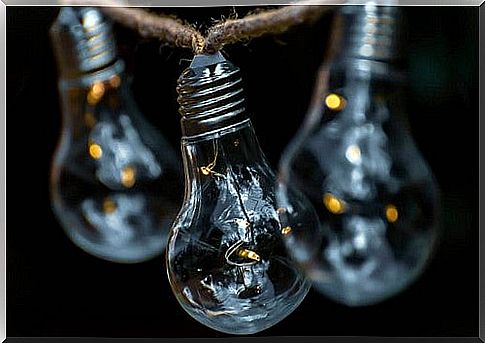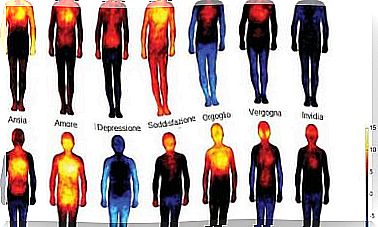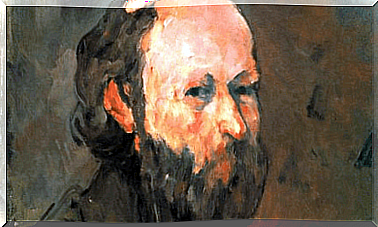Adaptive Intelligence: What Does It Consist Of?

The Flynn effect is the increase in the average IQ calculated on the global population year after year. In the period between 1938 and 2008, the most optimistic speak of an increase of 30 points. Over the past decade this index has not only stopped, but has started to decline. Another aspect reported by experts is that we are losing so-called adaptive intelligence.
Discovering that our intellectual resources have been reduced in recent times is frightening and makes us reflect. Perhaps relying too much on new technologies has led us to lose skills such as the ability to solve problems, creative thinking, memory, and even the ability to orient ourselves in a city without the help of GPS.
However, figures such as Robert J. Sternberg, a professor at Yale University, as well as one of the greatest authorities in the understanding and study of intelligence (we owe the triarchic theory to him), go further. At present we are witnessing the loss of a fundamental skill: the ability to react to changes and adapt to them by developing new strategies.

Adaptive intelligence: what it is and how to develop it
Over the years, the concept of intelligence and the perception of the ways in which it expresses itself has not only changed, but has also been enriched with new approaches. In this sense, the IQ is the variable most often used to describe intelligence.
Later, the controversial and much-criticized approach of multiple intelligences and the theory that emotional intelligence (or understanding of emotions) is equally crucial, made their debut. But what is the correct approach? Many would say that they are all valid.
Ultimately, intelligence is expressed in different ways: creativity, resolution skills, mental elasticity, understanding the other and reacting accordingly. But there is an interesting aspect that Robert J. Stenberg explains in his works.
In an article dedicated to adaptive intelligence in an age of catastrophes caused by human action, he talks about some aspects that we should keep in mind. The time has come to reformulate this concept and introduce a more useful one: that of adaptive intelligence.
More educated generations, but with a lower IQ
As we said at the beginning, the Flynn effect has suffered a setback since 2008; this means that starting from that year, instead of increasing, the world IQ has dropped generation after generation.
Have we lost some of our intelligence? Not entirely. Dr. Robert J. Sternberg argues that perhaps we have focused on teaching little useful skills to answer the current question.
In other words, current problems need actions for which we have not been prepared. Perhaps mastering the fractions, the equations, knowing which rivers cross Europe or what the king was called who conquered France in 1415 are not useful in solving the problem of climate change.
Sternberg indicates that we can no longer measure intelligence with classic tests or reduce it to the well-known IQ. We have generations incredibly educated in knowledge and skills that are not suited to the most urgent needs. This is the truth. The only useful approach at present is that of adaptive intelligence.
What is adaptive intelligence?
Albert Einstein said it and then Stephen Hawking repeated it: the only valid notion of intelligence is that in which there is the ability to adapt to the environment.
In other words, the intelligent person is the one able to adapt to changes in the context (however difficult) with an innovative approach. It means being aware of the challenges that arise along the way to understand them and react to them successfully and in an innovative way.
Adaptive intelligence therefore encompasses all those mechanisms, knowledge, skills and attitudes destined not only to face changes, but also to take advantage of them in order to progress successfully. Certainly a real challenge.

How can we develop adaptive intelligence?
To lay the foundations of adaptive intelligence, we would have to put a “full stop” in many aspects. In other words, a reset of many realities that we take for granted.
It also means implementing an open-mindedness capable of training self-criticism and being aware of the needs, challenges and dynamics of our current context. So let’s find out what strategies we should take into account to activate this intelligence.
Stop using the past as a role model
We all have a history behind us, but regardless of who we are, our studies and our experiences, the past, what happened yesterday, can no longer serve as a reference point. What happens today is another story.
Many elements that we used as a reference point in the past are no longer needed today, they don’t matter. It’s time to build the future, and to do that, you need to innovate, take risks, create new skills.
Beyond Expectations: Accepting Uncertainty
Linear thinking and expectations are no longer needed. The “I do this because I know the other one is going to happen and I can fix that thing” no longer works. We cannot take things for granted because the uncertainty factor today has more weight than ever.
We must put aside the old patterns and understand that the world has changed and we must know how to adapt. However, adaptation is not synonymous with renunciation; it means knowing what we have in front of us in order to transform it.
Emotion, intelligence and intuition
Robert J. Sternberg invites us to reflect on an important aspect: adaptive intelligence will have to coexist with artificial intelligence. Technology will occupy a decisive place in our lives and for this it is also necessary to have an advantage over it.
We must adapt to the new future in which information will flow non-stop and many activities will be automated thanks to machines capable of making decisions. Human beings, however, will always have an advantage over them: emotions, intuition and valid critical ability, which will count more and more.
This is our most powerful weapon: knowing how to adapt our intelligence to these dimensions always puts us in a privileged position at any time. It is time to take all these aspects into account, to focus on adaptability in order to transform ourselves.









